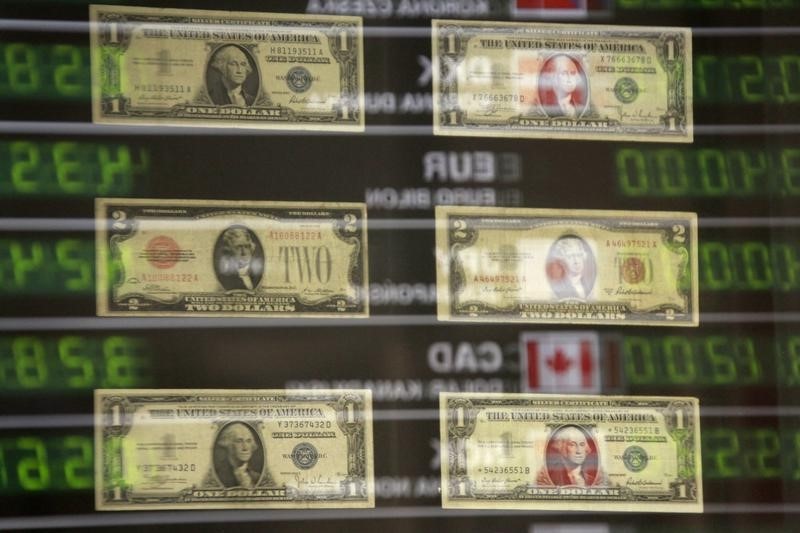(Adds trader comment, updates prices to close)
* Canadian dollar ends at C$1.2853, or 77.80 U.S. cents
* Loonie touched its weakest since June 6 at C$1.2873
* Bond prices lower across maturity curve
* 10-year yield hit its lowest since Feb. 24 at 1.078 pct
By Alastair Sharp
TORONTO, June 14 (Reuters) - The Canadian dollar settled at
its weakest in a week against a broadly firmer U.S. dollar on
Tuesday, but the risk-sensitive and commodity-linked currency
fared better against those more exposed to a potential British
exit from the European Union.
Anxiety prompted by opinion polls showing Britain's "Leave"
campaign gaining steam ahead of the June 23 vote pushed currency
traders to ditch the euro and sterling in favour of the Japanese
yen and Swiss franc.
Canada's currency slipped against those two currencies but
outperformed a range of others.
Meanwhile, 10-year Canadian government debt yields slumped
to a fresh multi-month low before recovering, while equivalent
German yields turned negative for the first time.
"It (the Canadian dollar) has been saved a little by the
fact the Fed hasn't hiked rates and oil has rallied (in recent
months)," said Darcy Browne, managing director of foreign
exchange sales at CIBC Capital Markets, referring to the U.S.
Federal Reserve. "Things have gone Canada's way for the last
little bit now."
The Canadian dollar CAD=D4 settled at C$1.2853 to the
greenback, or 77.80 U.S. cents, weaker than Monday's close of
C$1.2807, or 78.08 U.S. cents.
It traded in a relatively tight range between C$1.2816 and
C$1.2873, its weakest level since June 6.
In January it touched C$1.4689. At that time oil was trading
around $26 a barrel, while it last week topped $50.
Oil prices fell 1 percent on Tuesday, as Brexit fears
overshadowed signs of a return to health for crude after a
two-year glut. O/R
Chances the U.S. Federal Reserve will raise rates at a
meeting ending on Wednesday are considered to be virtually nil,
with U.S. job growth having slowed considerably in May and
policymakers concerned about the British EU vote.
CIBC's Browne said the Canadian currency could weaken
further in the next few months to trade in a C$1.30 to C$1.35
range without prodding from a major global shock.
In domestic data, the ratio of Canadian household
debt-to-income edged lower, Statistics Canada said.
Separately, Canadian home prices rose in May from a month
earlier, and were well up from the year before, the
Teranet-National Bank Composite House Price Index showed.
Canadian government bond prices were lower across the
maturity curve, with the two-year CA2YT=RR price down 2
Canadian cents to yield 0.499 percent and the benchmark 10-year
CA10YT=RR off 7 Canadian cents to yield 1.119 percent. The
10-year yield touched 1.078 percent in the session, its lowest
since Feb. 24.
